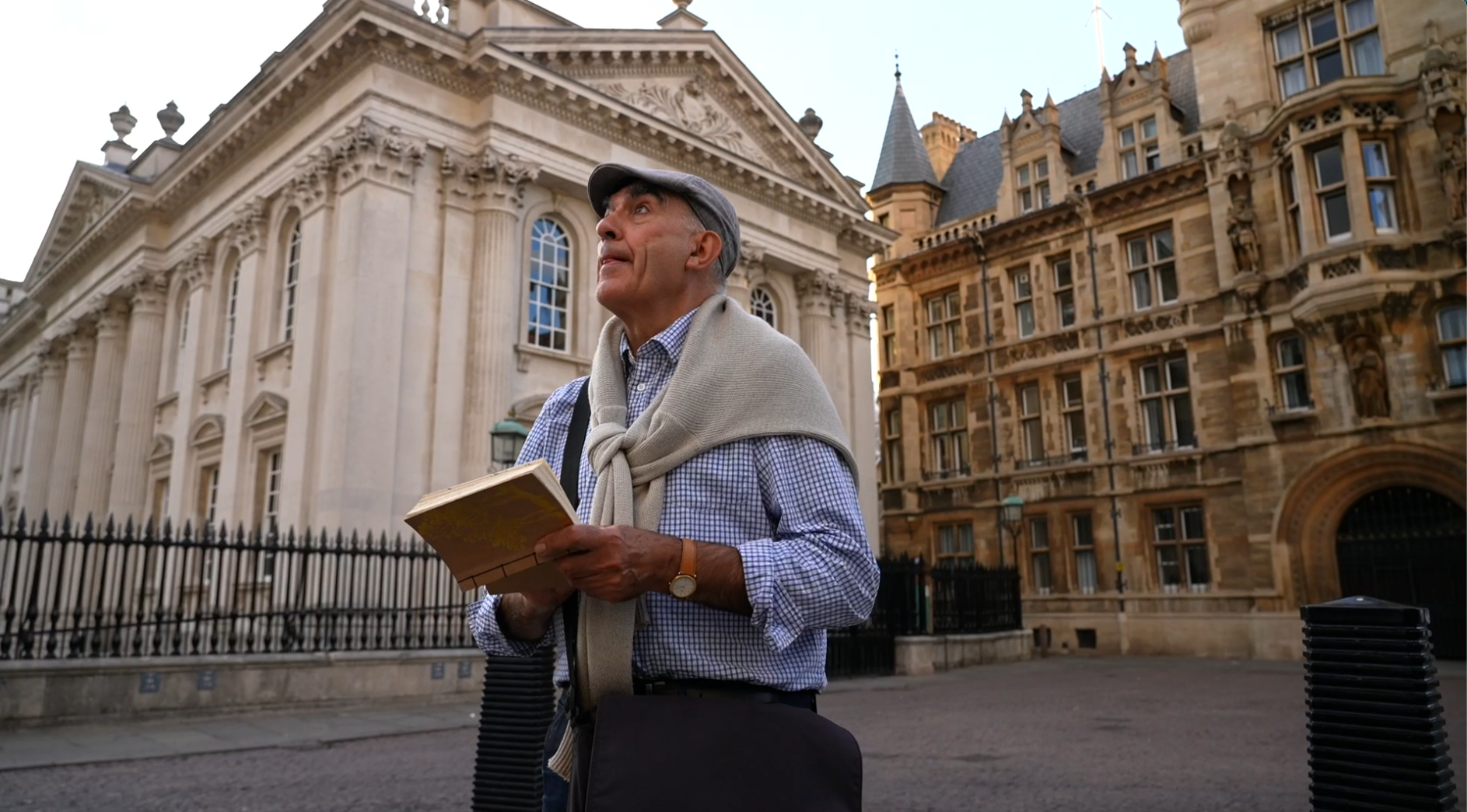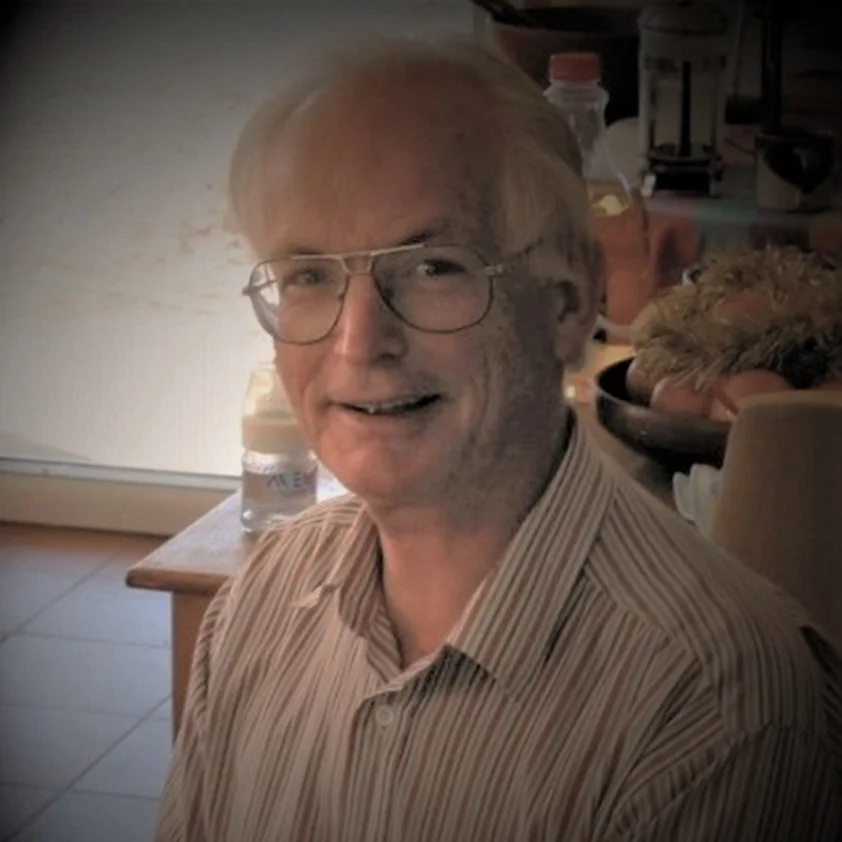Interviews with people have who worked with China
Interviews with individuals who have engaged with China are crucial for gaining insight into the complexities of China's culture, history, and current affairs. By hearing first hand experiences and perspectives from people who have interacted with China, we can better understand the nuances of its society and the impact of its global connections. These interviews provide valuable context for analysing China's role in international relations, trade, technology, and diplomacy. Furthermore, they offer a platform for individuals to share their experiences, fostering cross-cultural understanding and dialogue. Through these interviews, we can uncover diverse narratives that enrich our understanding of China's multifaceted influence on the world stage.
Alan Macfarlane
Alan Macfarlane was born in Shillong, India and educated at the Dragon School, Sedbergh School, Oxford and London Universities where he received two Master’s degrees and two doctorates. He is the author of over forty books. He has worked in England, Nepal, Japan and China as both an historian and anthropologist. He was elected to the British Academy in 1986 and is now Emeritus Professor of Anthropology at the University of Cambridge and a Life Fellow of King’s College, Cambridge.
Michael O’Sullivan
As a pioneer in international education, Michael O'Sullivan has always been at the forefront of the field. Over the past 40 years, he has worked in different areas of education both in the UK and China. At each stage of his career, he has been involved in the most popular and significant field of international education at that time. He has made outstanding contributions to promoting exchanges and collaboration between Chinese and British education.
Jessica Rawson
Dame Jessica Mary Rawson, DBE, FBA is an English art historian, curator and sinologist. She is also an academic administrator, specialising in Chinese art. After many years at the British Museum, she was Warden of Merton College, Oxford, from 1994 until her retirement in 2010.
Professor Rawson’s primary academic interests are in early China’s history and material culture. She is best known for her research on the interaction of the peoples of central China with those along the borders with northern Eurasia, which resulted in major innovations, such as the introduction of metallurgy to China. She has presented her research as a Global Fellow at Peking University in 2017 and as an Academic Fellow at the China Academy of Art, Hangzhou from 2017 to 2019.
Sir Edmund Leach
Sir Edmund Ronald Leach FRAI FBA was a British social anthropologist and academic. He served as provost of King's College, Cambridge from 1966 to 1979. He was also president of the Royal Anthropological Institute from 1971 to 1975.
Sir Edmund spent his youth and early years in China before relocating to the LSE and, eventually, Cambridge. His anthropological fieldwork focused on Burma and Sri Lanka.
Roderick MacFarquhar
Roderick MacFarquhar was a politician, journalist, and academic whose research focused on China under Mao. The inaugural editor of the China Quarterly, he held academic positions at Columbia and Harvard.
Peter Cavaciuti
Based in Cambridge, UK, Peter studied Chinese painting under Fei Cheng Wu, principal student of Xu Beihong.His continued research and study in Japanese culture and aesthetics, especially Chado (The Way of Tea) and Zen, have contributed greatly to this field.Peter has been teaching for over 30 years and has exhibited at the Royal Academy Summer Exhibition, and Royal Watercolour Society. He regularly has shows in Europe and Asia.
Lucy Hamilton
Lucy Hamilton grew up in Norfolk with her French mother and English father, the youngest of six children including a twin sister. She has enjoyed a career in teaching, including Chinese students for seven years at Ashford School, Kent.
She co-edited Long Poem Magazine from 2008 to 2018. Since 2015 she has worked for Cam Rivers Publishing and has enjoyed several work-related visits to China. She has published a pamphlet Sonnets for my Mother, and two collections of prose poems: Stalker, shortlisted for the Forward Prize for Best First Collection; and Of Heads & Hearts.
Hirayama Studio, British Museum
Under the tutelage of the renowned art conservator, Qiu Jinxian, the members of the Hirayama Studio at the British Museum, Carol Weiss and Valentina Marabini are at the forefront of East Asian Art Restoration.
The Museum’s Hirayama Studio opened in 1994 and specialises in conserving East Asian paintings, scrolls and folding screens using traditional techniques. The focus on preserving the tradition and culture behind art conservation is a point of pride for Jinxian, Weiss and Marabini. With the youthful exuberance brought by the Western conservators, combined with the decades of experience exemplified in Jinxian, the studio conserves and recreates some of the most valuable treasures and pieces of East Asian art history.
Frances Wood
Frances Wood is an English librarian, sinologue and historian known for her writings on Chinese history, including Marco Polo, life in the Chinese treaty ports, and the First Emperor of China.
Mark Elvin
Mark Elvin was an Australian academic who researched the environmental, technological, and economic history of China. A scholar of wide-ranging interests, he was particularly known for his concept of the “high-level equilibrium trap,” as elaborated in his The Patterns of the Chinese Past, and his landmark study of Chinese environmental history The Retreat of the Elephants.
David Paskett
Born in London, David Paskett studied at Hornsey, Exeter, and Liverpool Colleges of Art. Living in Hong Kong from 1986 to 1990 David has regularly returned to exhibit and collect fresh material for paintings. One of Britain’s leading watercolourists, Paskett is held in equally high regard in China, which is a major source of inspiration for his paintings.
His visits to many parts of China have resulted in a collection of images that, viewed together, represent a rich visual archive of Chinese everyday life.
David Crilly
David Crilly is the Artistic Director of the Cambridge Shakespeare Festival.
David Crilly established the Cambridge Shakespeare Festival Company in Oxford in 1988 whilst still a member of Magdalen College, where he undertook doctoral research in musicology. He is a composer and has performed on many occasions as an orchestral conductor in Cambridge. He has published on semiotics, music analysis and aesthetics, and also on the music of Britten, Debussy and Charlie Parker. For eighteen years he was Director-in-Residence for Anglia Opera. He is also an independent researcher in Music and Drama and recently returned from lecture tours of India, Oman, Jordan, Namibia and South Africa.
Stef Conner
Stef Conner is a performer and composer who makes new music based on evidence from deep history. She began her career performing with the Northumbrian folk band The Unthanks, which ignited an enduring commitment to musical storytelling. Highlights included playing at the Barbican, Glastonbury, Womad and the Mercury Music Awards; and supporting Adele. Although she parted ways with the Unthanks in 2010, she has made occasional guest appearances, including Home Gathering Festival (2018); and at the Barbican, Sage, and Cardiff Millennium Centre in 2023.
Hans van de Ven
Johan 'Hans' van de Ven is an authority on the history of 19th and 20th century China. He holds several positions at the University of Cambridge, where he is Professor of Modern Chinese History, Director in Asian and Middle Eastern Studies at St Catharine's College and previously served as Chair of the Faculty of Asian and Middle Eastern Studies. He studied sinology at Leiden University. Then, after studying with Susan Naquin at the University of Pennsylvania for a period of time, he moved to Harvard University, where he studied modern Chinese history under Philip Kuhn and received his PhD.














